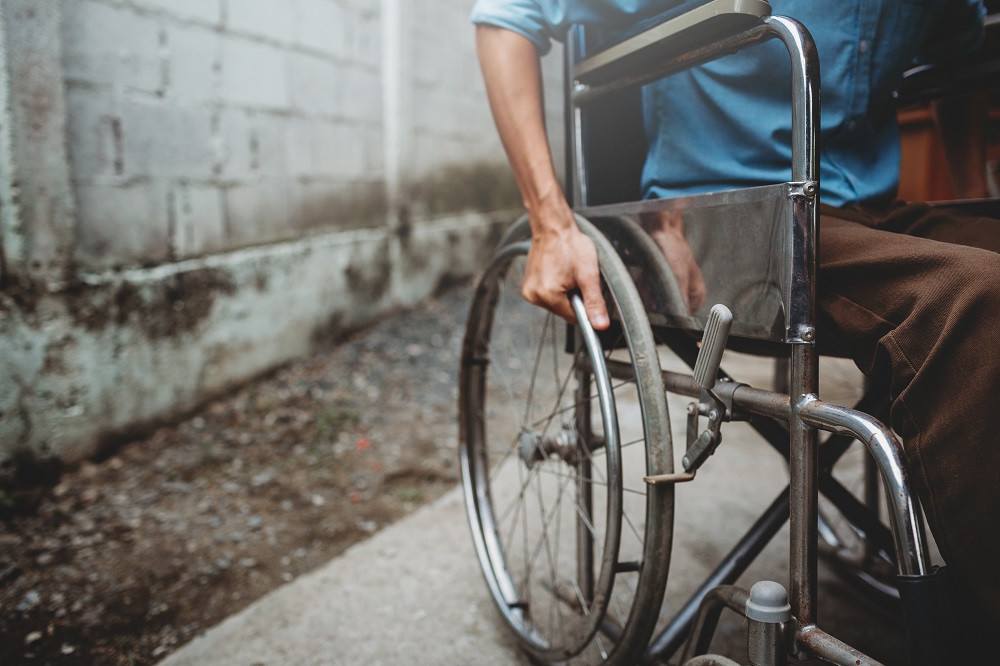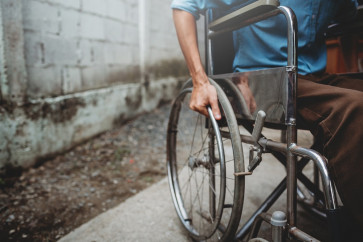Popular Reads
Top Results
Can't find what you're looking for?
View all search resultsPopular Reads
Top Results
Can't find what you're looking for?
View all search resultsPeople with disabilities still dreaming of equal access to public services, infrastructure
In some cases, authorities don't have the required competencies to be able to guide people with disabilities in accessing public amenities.
Change text size
Gift Premium Articles
to Anyone
O
n a fine Saturday afternoon at the parking lot of Gambir Station in Central Jakarta, passersby would not be faulted for thinking that the scorching sun had helped exacerbate a heated exchange of words between two men.
Mahmud Fasa, an amputee, had parked his motorcycle in the area designated for persons with disabilities, which was conveniently located near the station’s entrance gate. He was there to take a train to Cirebon in West Java.
But as soon as he parked his vehicle, a uniformed officer approached and asked him to move someplace else, as he pointed his finger at a blue sign of a person in a wheelchair.
“The security officer had no idea that it was a universal sign that applies not only to people in wheelchairs, but to all persons with disabilities,” Mahmud told The Jakarta Post on Monday. “So I asked him to call out his boss.”
Read also: 'A form of betrayal': Disability rights activists criticize 'discriminatory' jobs law
Unsurprised, but with a hint of frustration in his voice, Mahmud said he had seen many of the officers and security personnel deployed to keep offices and public facilities safe lacking knowledge on disability issues.
In some cases, they didn’t even have the required competencies to be able to guide people with disabilities in accessing public amenities.


















